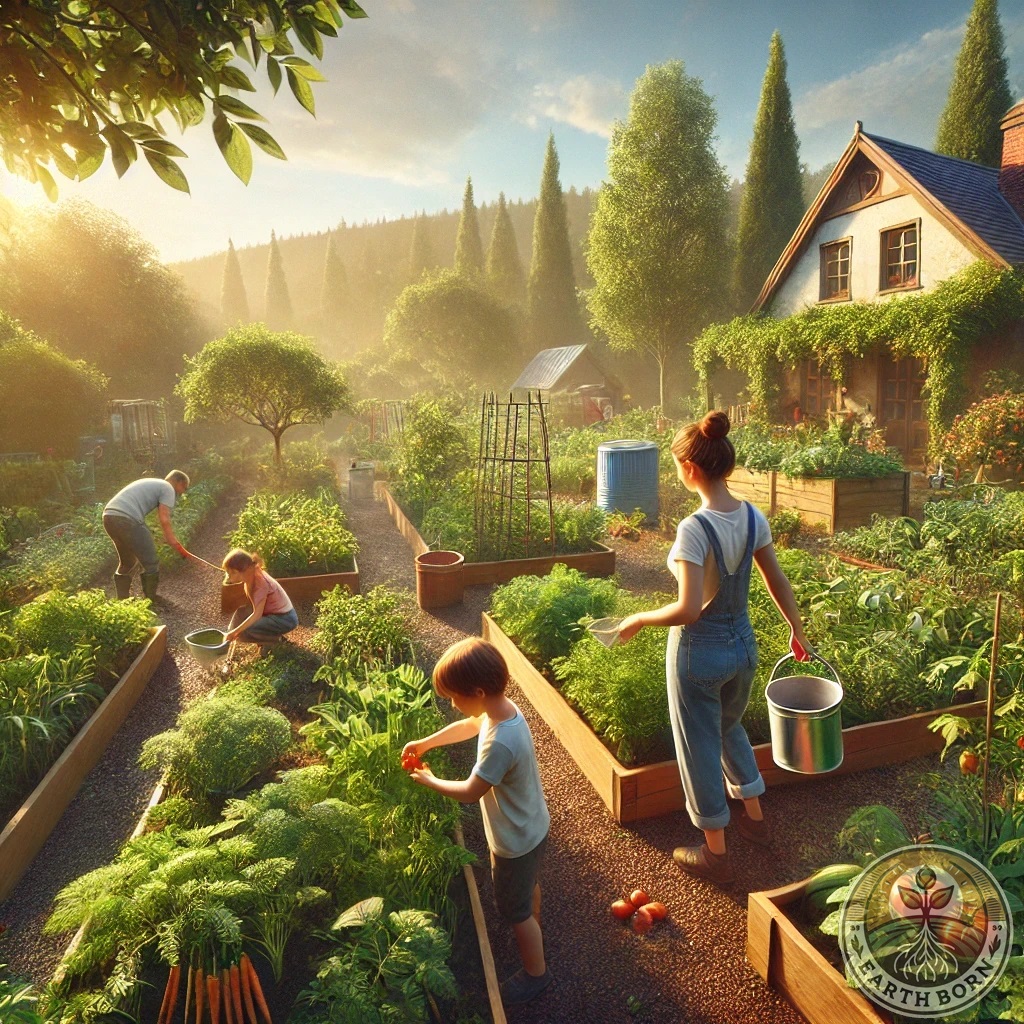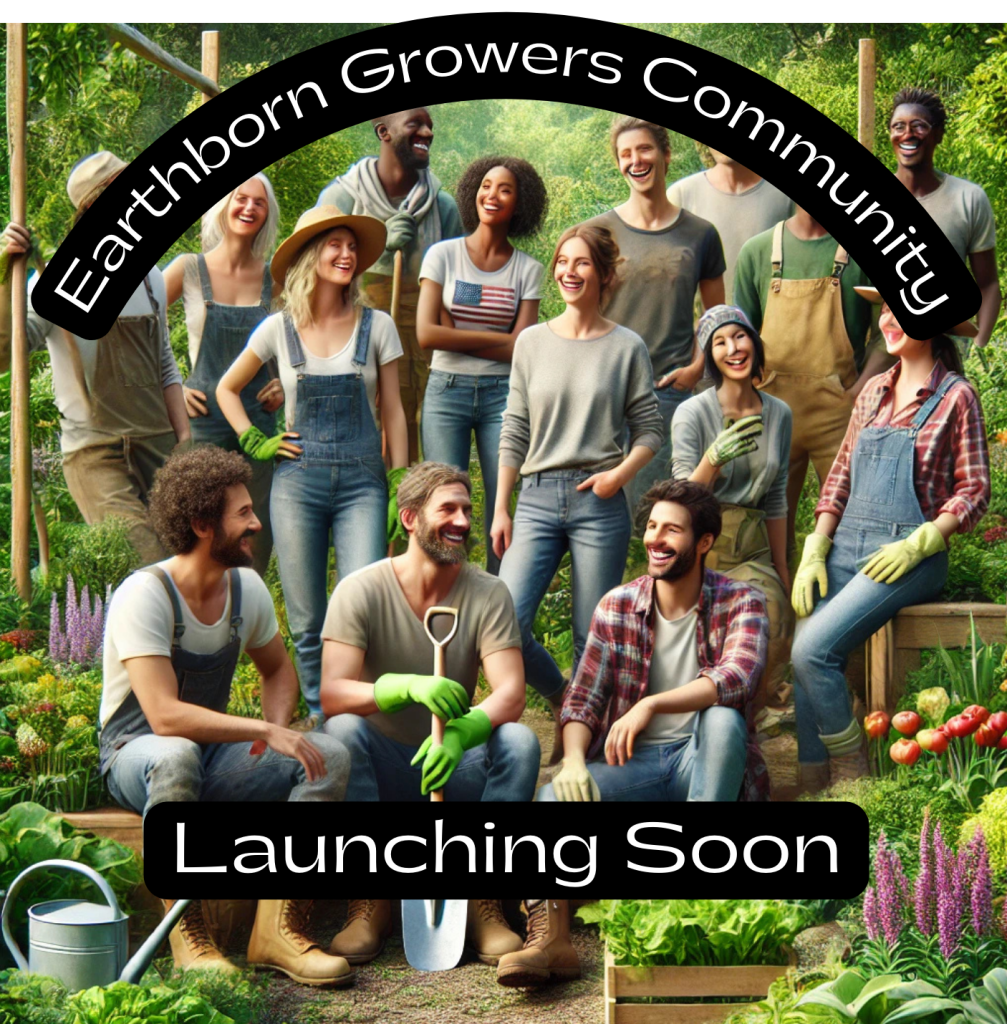
In a world of rising food prices, supply chain disruptions, and increasing concerns about food security, the ability to grow your own food has never been more important. For generations, gardening was a basic skill passed down through families, but in modern times, convenience and industrial agriculture have distanced many from this fundamental knowledge. Today, however, we are seeing a revival of homegrown food as people realize the value of food sovereignty, sustainability, and self-sufficiency.
🛡️ 1. Food Security in Uncertain Times
The global food system is more fragile than it appears. Economic instability, climate change, and conflicts affecting major agricultural regions have all contributed to supply chain breakdowns. Many have felt the impact firsthand—empty grocery store shelves, skyrocketing prices, and concerns about food availability. Growing your own food means having a reliable source of fresh produce, reducing dependence on unpredictable external forces.
💰 2. Rising Food Costs
Food prices are climbing at alarming rates due to inflation, transportation costs, and climate-related crop failures. By growing even a small portion of your own fruits, vegetables, and herbs, you can significantly cut your grocery bill. Staples like leafy greens, tomatoes, and root vegetables are easy to grow and provide continuous harvests, reducing your reliance on expensive store-bought produce.
🌿 3. Healthier, Pesticide-Free Food
Most commercially grown produce is treated with synthetic pesticides, herbicides, and chemical fertilizers, many of which have been linked to health concerns. When you grow your own food, you control what goes into the soil and onto your plants. You can opt for organic, chemical-free methods that nourish both your body and the environment. Freshly harvested homegrown produce is also more nutrient-dense than store-bought alternatives, which often lose vitamins and minerals during transport and storage.
☀️ 4. Resilience in the Face of Climate Change
Extreme weather events, prolonged droughts, and soil degradation are putting immense pressure on global agriculture. While large-scale farms struggle to adapt, home gardens offer a more flexible solution. By using regenerative practices like composting, mulching, and water-efficient irrigation, home growers can create micro-ecosystems that are more resilient to changing weather patterns.
🌍 5. Reconnecting with Nature and Sustainable Living
Modern life has distanced many people from nature, but growing your own food helps rebuild that connection. Gardening teaches patience, observation, and appreciation for natural cycles. It also reduces food waste—when you grow your own food, you value it more and learn to use every part efficiently.
🏡 6. A Step Toward Self-Sufficiency
Historically, self-sufficiency was a necessity, not a luxury. In today’s fast-paced, consumer-driven world, most people rely entirely on supermarkets and restaurants for food. However, learning how to grow and preserve food gives you more independence. Whether it’s a backyard garden, balcony pots, or an indoor herb setup, every step toward self-reliance strengthens your ability to provide for yourself and your family.
👨👩👧👦 7. A Skill for Future Generations
Teaching children and young adults how to grow food is one of the most valuable skills we can pass down. As food security concerns grow, future generations will benefit immensely from knowing how to cultivate, harvest, and preserve food. Gardening fosters responsibility, creativity, and problem-solving—essential skills for any era.
✊ 8. A Revolutionary Act
In a system designed to keep people dependent on mass production and corporate agriculture, growing your own food is a revolutionary act. It is a statement of independence, a commitment to sustainability, and a rejection of the artificial scarcity that often drives food markets. Every homegrown tomato, every sprig of fresh basil, and every basket of homegrown greens is a step toward a healthier, more empowered future.
🚀 Start Small, Start Today
You don’t need acres of land to start growing your own food. A few pots on a windowsill, a raised bed in your backyard, or a vertical garden on your balcony can provide fresh, nutritious food. Start with easy crops like lettuce, herbs, and radishes, and expand as you learn.
The world is changing fast, and now is the time to reclaim the essential skill of growing food. It is not just a hobby—it is an act of resilience, empowerment, and preparedness for an uncertain future.
🌿 Will you take the first step toward food sovereignty? Why not join our #EarthbornGrower community, by signing up for our free newsletter, and start planting today!


 **Meet Sprout!** Sprout is your friendly gardening companion at Earthborn, always ready with helpful advice on plant care, medicinal herbs, and natural gardening solutions. From seedling to harvest, Sprout provides expert guidance to nurture your garden and your well-being—making gardening easy, fun, and naturally rewarding.
**Meet Sprout!** Sprout is your friendly gardening companion at Earthborn, always ready with helpful advice on plant care, medicinal herbs, and natural gardening solutions. From seedling to harvest, Sprout provides expert guidance to nurture your garden and your well-being—making gardening easy, fun, and naturally rewarding.
